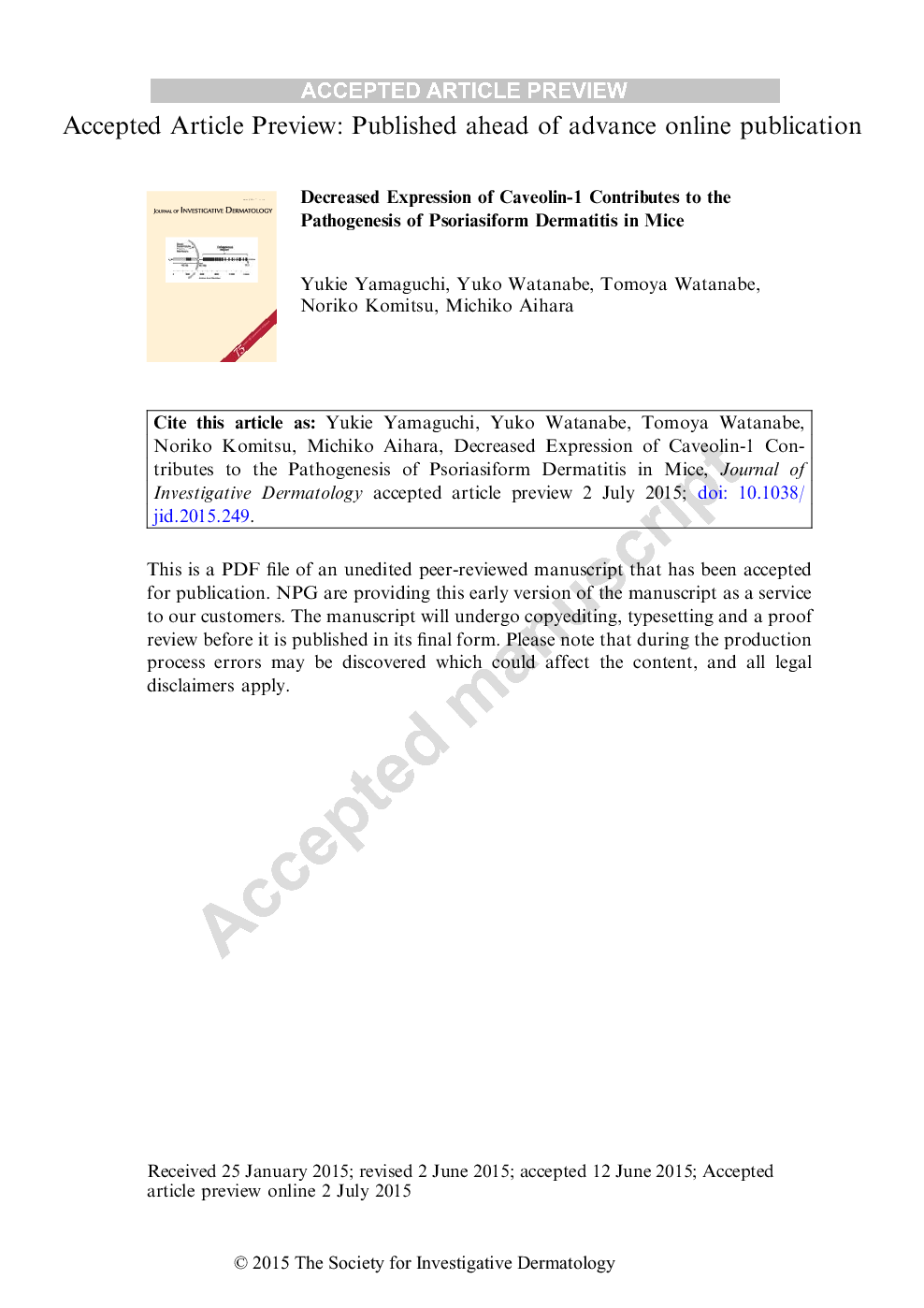| Article ID | Journal | Published Year | Pages | File Type |
|---|---|---|---|---|
| 6075383 | Journal of Investigative Dermatology | 2015 | 50 Pages |
Abstract
Psoriasis is a chronic inflammatory skin disease characterized by excessive proliferation and abnormal keratinocyte development, in which T helper type 17 cells and signal transducer and activator of transcription 3 (STAT3) activation have pivotal roles. Moreover, caveolin-1 (CAV-1) has been implicated in the regulation of signal transduction, and aberrant CAV-1 expression is involved in a variety of diseases. However, whether CAV-1 is involved in psoriasis is unknown. Here we examined CAV-1 expression in the psoriatic epidermis and investigated its role in the pathogenesis of psoriasis. CAV-1 was markedly reduced in lesional epidermis of psoriasis patients. CAV1 silencing in keratinocytes in vitro revealed significant activation of STAT3, leading to increased expression of keratin 16 and several cytokine/chemokines, such as IL-6, C-X-C chemokine ligand 8 (CXCL8), CXCL9, and C-C chemokine ligand 20. In addition, psoriasis-related cytokines, including tumor necrosis factor-α (TNF-α), decreased CAV-1 expression in keratinocytes. Finally, administration of CAV-1 scaffolding domain peptide in a murine model of psoriasis-like skin inflammation induced by imiquimod improved the skin phenotype and reduced epidermal thickness and infiltrating cell counts. Furthermore, expression of TNF-α, IL-17A, and IL-23 was significantly suppressed by this treatment. Collectively, our study indicated that CAV-1 participates in the pathogenesis of psoriasis by regulating the STAT3 pathway and cytokine networks.
Related Topics
Health Sciences
Medicine and Dentistry
Dermatology
Authors
Yukie Yamaguchi, Yuko Watanabe, Tomoya Watanabe, Noriko Komitsu, Michiko Aihara,
